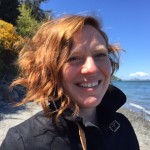Page 14 • (12,588 results in 0.021 seconds)
-
“The Ethics of Lethal Drone Warfare” – Dr. Bradley Strawser
Killer Drones - The Good, The Bad, and the Ugly (pdf) view download "The Ethics of Lethal Drone Warfare" - Dr. Bradley Strawser
-
Originally Published 1999 “The Artist, the thinker, the hero, the saint —who are they, finally, but the finite self radicalized and intensified? . . . The difference between [them] and the rest of us . . . is a willingness to undergo the journey of…
Gaps and Gifts Posted by: alex.reed / May 26, 2022 May 26, 2022 By Patricia O’Connell KillenOriginally Published 1999 “The Artist, the thinker, the hero, the saint —who are they, finally, but the finite self radicalized and intensified? . . . The difference between [them] and the rest of us . . . is a willingness to undergo the journey of intensification into particularity to the point where an originating sense for the fundamental questions and feelings that impel us all, and a rare response
-
Wild Hope Center for Vocation faculty and staff.
Joanna Gregson Provost and Senior Vice President for Academic Affairs Full Profile 253-535-7126 gregson@plu.edu
-
Library faculty and staff.
Roberto Arteaga Associate Professor & Instruction and Reference Librarian Full Profile 253-535-7505 rarteaga@plu.edu
-
Students who take Gender, Sexuality, and Race Studies courses at PLU will learn how to: Understand the social construction of gender, sexuality, and race. Analyze systems of privilege and oppression.
Learning Outcomes for the Gender, Sexuality and Race Studies MajorStudents who take Gender, Sexuality, and Race Studies courses at PLU will learn how to: Understand the social construction of gender, sexuality, and race. Analyze systems of privilege and oppression. Assess the intersectional relationship between knowledge production, identities, and power. Communicate and collaborate across differences. Practice community-engaged scholarship and coalition building. Engage in critical imagining
-

Director, Native American & Indigenous Studies | Native American and Indigenous Studies | jamesja@plu.edu | 253-535-7217 | Jenny James was born and raised in Michigan, the home of the Great Lakes and the Michigan Wolverines.
. Before coming to PLU, she lived in Boston, Hanover, NH and New York City. Jenny teaches American literature from 1860 to the present, with a special emphasis on the representation of race, gender and sexuality in fiction written after 1945. She also teaches a Writing 101 course on water, politics and place for the First Year Experience Program. Her research traces the development of narratives of affiliation in the post-1960 North American novel. In their depiction of alternative forms of loving
-

Associate Professor of English | Environmental Studies | jamesja@plu.edu | 253-535-7217 | Jenny James was born and raised in Michigan, the home of the Great Lakes and the Michigan Wolverines.
. Before coming to PLU, she lived in Boston, Hanover, NH and New York City. Jenny teaches American literature from 1860 to the present, with a special emphasis on the representation of race, gender and sexuality in fiction written after 1945. She also teaches a Writing 101 course on water, politics and place for the First Year Experience Program. Her research traces the development of narratives of affiliation in the post-1960 North American novel. In their depiction of alternative forms of loving
-

Locals embrace Lutes as they meet living legends, learn about vibrant events such as Carnival and Panorama, and develop valuable racial consciousness within a multicultural society that celebrates
know half of this stuff.” That stuff, Hughes and others say, transforms those who experience it. Students meet the “living legends” who have mastered steelpan and calypso music. They experience the revival of the cocoa industry and get an intimate look at the planning behind exuberant events such as Carnival and Panorama. And, most importantly, they dive into deep questions about identity, race, gender, colonialism and other complexities. “It’s a growing and learning experience,” said Maya Bamba
-

Associate Professor of English | Department of English | jamesja@plu.edu | 253-535-7217 | Jenny James was born and raised in Michigan, the home of the Great Lakes and the Michigan Wolverines.
. Before coming to PLU, she lived in Boston, Hanover, NH and New York City. Jenny teaches American literature from 1860 to the present, with a special emphasis on the representation of race, gender and sexuality in fiction written after 1945. She also teaches a Writing 101 course on water, politics and place for the First Year Experience Program. Her research traces the development of narratives of affiliation in the post-1960 North American novel. In their depiction of alternative forms of loving
-
Saturday, May 18, 2019 9 a.m. - 1 p.m. Anderson University Center
Students’ Engagement with Institutional Values Mitch Perantie How do Aspirations and Expectations of Adulthood Differ Among High School Students? Anderson University Center, #133Race and IdentityAziza AhmedEmma SealShai WilsonAziza Ahmed The Resistance and Reconstruction of Black Women in Higher Education Emma Seal The Color of Twitter: How Individuals Talk About Race Shai Wilson The Impact of Gender-Based Violence on Parenting for Black Mothers: How do Advocates Define the Restorative Relationships
Do you have any feedback for us? If so, feel free to use our Feedback Form.


